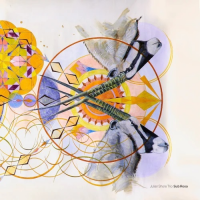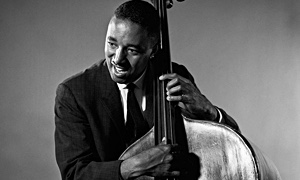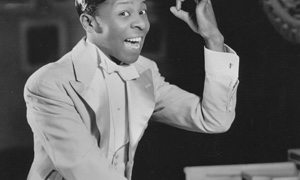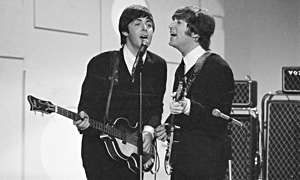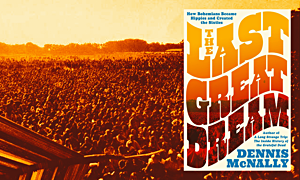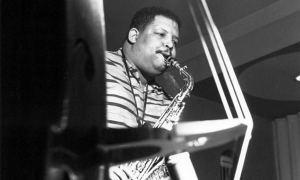Home » Jazz Articles » Book Review » The Lady Swings: Memoirs of a Jazz Drummer
The Lady Swings: Memoirs of a Jazz Drummer
 The Lady Swings: Memoirs of a Jazz Drummer
The Lady Swings: Memoirs of a Jazz Drummer Dottie Dodgion and Wayne Enstice
264 Pages
ISBN: #9780252085512
University of Illinois Press
2021
Dottie Dodgion isn't reluctant to share the trials and tribulations endured throughout a long life. Dodgion was raped by her stepfather at age ten, afflicted with early stage polio as a teenager, endured physical, sexual, and emotional abuse at the hands of men in intimate relationships, suffered a back-alley abortion, and repeatedly encountered all manner of sexism on and off the bandstand. While these ordeals and many others are integrated into an account of her decades as a struggling jazz musician, she is not asking for sympathy, she is not trying to make refined points about sexual politics, nor is she looking to settle old scores. In The Lady Swings: Memoirs of a Jazz Drummer, Dodgion casts herself as an irrepressible spirit and a striver, putting the hardships into perspective by emphasizing her devotion to the music, expounding on the gradual evolution of her artistry, and celebrating the highs of making music with musicians ranging from jazz royalty to figures who don't appear in the music's history texts.
Dodgion's jazz education began in childhood, prior to World War II. Far removed from the conventions of school bands and private music studies, a wealth of experiential learning took place in strip clubs as well as at record listening sessions in motel rooms, courtesy of her father, an accomplished jazz drummer. Years before she picked-up a pair of sticks, Dodgion "absorbed a certain amount of rhythm from him" during rehearsals and shows. Sitting beside him on the bandstand, she could see how he got a certain sound on the kit, and gradually began to understand the logic of what he played.
Father and daughter often stayed up until the early hours of the morning, listening to records by

Billie Holiday
vocals1915 - 1959

Duke Ellington
piano1899 - 1974

Count Basie
piano1904 - 1984

Woody Herman
band / ensemble / orchestra1913 - 1987
Regular weekend visits to Streets of Paris strip club, where her dad led the house band, were also "an important part of my education about how men and women treated each other. The word ugly comes to mind." Her father offered critical commentary on interactions between couples, claiming, in one instance, that a brutal assault constituted a face-saving gesture on the part of the man. It could have been avoided if only the woman hadn't the temerity to slap him first in public. In the end, Dodgion says, "I realized that my father was teaching me how to be one of the guys."
A dismissive attitude towards traditional musical literacy often surfaces in Dodgion's account of her decades as a professional jazz musician. She proudly describes herself as "a self-taught drummer who got help along the way," and steadfastly declined to learn to read music or engage in conventional study of the instrument. Her methods of coping with bands employing written arrangements are laid bare in stories of sitting in with

Lionel Hampton
vibraphone1908 - 2002

Benny Goodman
clarinet1909 - 1986

Mel Lewis
drums1929 - 1990

Thad Jones
trumpet1923 - 1986
Dodgion's insistence on operating without the benefit of sheet music and lack of interest in conventional rudiment-based technique should not be confused with an absence of principles regarding her role in jazz ensembles ranging from combos to big bands. The goal was to be part of a rhythm section in which "all three musicians are close together in their interpretation or division of the time...it's complete Nirvana." She thrived as a supportive player, displayed little interest in taking a solo, and is critical of drummers who rely solely on power and volume to lay down a tempo. Taking the advice of her longtime mentor, bassist

Eugene Wright
bass1923 - 2020
Throughout the book Dodgion displays remarkable tenacity in doing whatever was necessary to get a toehold in the business of playing jazz. For example, at Bop City in San Francisco in the early 1950s, the It Club in Los Angeles in the later part of the same decade and the Half Note in New York City in the early 1960s, she was always hanging out and listening. Dodgion made her presence known without getting in the way, took advantage of any opportunity to sit in, gained valuable experience and— sometimes—received an offer of compensable work. "If a drummer took sick, was late, had habits, or lived in New Jersey and couldn't get across the bridge," she says of nights at the Half Note, "I was there and, by God it always paid off!."
The realization that her brief time in Benny Goodman's band would not necessarily lead to other high-profile opportunities was one of many humbling experiences in Dodgion's volatile career. "Yes, I'd rung the bell, but there were so many important musicians in New York doing impressive things that my small victory quickly slipped from view and I was just a footnote again." Nevertheless, she persisted. Playing casuals, weddings, and proms, and backing comedians and dance acts often paid the bills, while occasional protracted engagements with the likes of

Marian McPartland
piano1918 - 2013

Wild Bill Davison
cornet1906 - 1989

Al Grey
trombone1925 - 2000

Billy Mitchell
synthesizer1926 - 2001

Ruby Braff
cornet1927 - 2003

Joe Venuti
violin1903 - 1978

Melba Liston
trombone1926 - 1999
Dodgion's insistence on leaving the rough edges of her life intact for all to see, gleefully serving up her times in the music in all their messy glory, makes for compelling reading. The book is recommended to anyone interested in jazz musicians, particularly women, who are outside of the pantheon. The Lady Swings belongs on the short list of essential jazz autobiographies.
Dottie Dodgion died on September 17, 2021 at the age of 91.
Tags
Book Review
David A. Orthmann
University of Illinois Press
Billie Holiday
duke ellington
Count Basie
Woody Herman
Lionel Hampton
Benny Goodman
Mel Lewis
Thad Jones
Eugene Wright
Marian McPartland
Wild Bill Davison
Al Grey
Billy Mitchell
Ruby Braff,
Joe Venuti
Melba Liston
Comments
PREVIOUS / NEXT
Support All About Jazz
 All About Jazz has been a pillar of jazz since 1995, championing it as an art form and, more importantly, supporting the musicians who make it. Our enduring commitment has made "AAJ" one of the most culturally important websites of its kind, read by hundreds of thousands of fans, musicians and industry figures every month.
All About Jazz has been a pillar of jazz since 1995, championing it as an art form and, more importantly, supporting the musicians who make it. Our enduring commitment has made "AAJ" one of the most culturally important websites of its kind, read by hundreds of thousands of fans, musicians and industry figures every month.




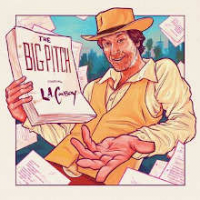



 Buy Now
Buy Now


